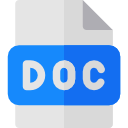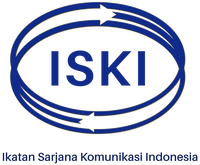Digital Activism of Health Professional during Pandemic: a Lesson Learned from @Pandemictalks
DOI:
https://doi.org/10.31315/jik.v21i3.9067Keywords:
Aktivisme Digital, Komunikasi Kesehatan, Pandemictalks, Aktivisme media sosialAbstract
Ketika pandemi COVID-19 menyebar, aktivisme digital muncul sebagai respons terhadap infodemik di Indonesia. Studi ini berfokus pada aktivisme digital Pandemictalks dan bertujuan untuk mengeksplorasi tujuan, strategi, dan dampaknya. Penelitian ini menggunakan pendekatan kualitatif dengan paradigma kritis. Penelitian ini menggunakan model Analisis Wacana Kritis Norman Fairclough untuk mengkaji praktik linguistik dan sosiokultural yang digunakan oleh Pandemictalks selama periode penelitian. Temuan mengungkapkan bahwa Pandemictalks dilatarbelakangi oleh kegelisahan awal akibat pandemi di Indonesia, didorong oleh kurangnya kewaspadaan dan transparansi data pemerintah. Studi ini mengidentifikasi lima bidang fokus utama Pembicaraan Pandemi: protokol kesehatan, kebijakan pemerintah, pendidikan, vaksinasi, dan perubahan iklim. Melalui aktivisme digitalnya, Pandemictalks menyediakan saluran informasi alternatif dan jalur pengaduan, sekaligus melakukan kampanye positif bagi masyarakat. Tujuan utama dari Pandemictalks adalah untuk meningkatkan kesadaran akan COVID-19 di masyarakat, berkontribusi pada penyebaran informasi penting. Selain itu, aktivitas mereka memungkinkan mereka mengakumulasi modal sosial, terbukti dengan bertambahnya jumlah pengikut mereka. Dalam hal konstruksi bahasa, Pandemictalks menggunakan gaya bahasa diksi populer dan sindiran untuk menyelaraskan dengan suasana Instagram, sehingga secara efektif melibatkan audiens mereka. Penelitian ini menyoroti pentingnya aktivisme digital selama pandemi dan perannya sebagai sumber informasi alternatif dan platform bagi keprihatinan masyarakat di Indonesia. Studi ini merekomendasikan riset berikutnya untuk menggali lebih dalam upaya komunikasi sains dan komunikasi kesehatan yang dilakukan oleh para aktivis, pendidik, dan petugas kesehatan selama dan pascapandemi di Indonesia.
References
Aldred, R. (2012). The role of advocacy and activism. In Transport and Sustainability (Vol. 1, pp. 83–108). Emerald Group Publishing Ltd. https://doi.org/10.1108/S2044-9941(2012)0000001006
Allen, G., & MacLeod, R. M. (2001). Science, History and Social Activism (G. E. Allen & R. M. MacLeod, Eds.; Vol. 228). Springer Netherlands. https://doi.org/10.1007/978-94-017-2956-7
Allington, D., Duffy, B., Wessely, S., Dhavan, N., & Rubin, J. (2020). Health-protective behaviour, social media usage, and conspiracy belief during the COVID-19 public health emergency. Psychological Medicine. https://doi.org/10.1017/S003329172000224X
AnalisaIO. (2022, January 31). @Pandemictalks - Analysis. AnalisaIO. https://analisa.io/profile/pandemictalks
Banerjee, D., & Meena, K. S. (2021). COVID-19 as an “Infodemic” in Public Health: Critical Role of the Social Media. Frontiers in Public Health, 9(March), 1–8. https://doi.org/10.3389/fpubh.2021.610623
Bennett, W. L., & Segerberg, A. (2013). The Logic of Connective Action. Cambridge University Press.
Carr, C. T., & Hayes, R. A. (2015). Social Media: Defining, Developing, and Divining. Atlantic Journal of Communication, 23(1), 46–65. https://doi.org/10.1080/15456870.2015.972282
Cinelli, M., Quattrociocchi, W., Galeazzi, A., Valensise, C. M., Brugnoli, E., Schmidt, A. L., Zola, P., Zollo, F., & Scala, A. (2020). The COVID-19 social media infodemic. Scientific Reports, 10(1), 1–18. https://doi.org/10.1038/s41598-020-73510-5
Conde, M. (2015). THE BLURRED BOUNDARIES BETWEEN SCIENCE AND ACTIVISM : From activism to science and from science to activism in environmental-health justice conflicts. Journal of Science Communication, 14(02).
Cosentino, G. (2023). The Infodemic: Disinformation, geopolitics and the Covid-19 Pandemic. Bloomsbury Publishing.
CSIS. (2021). Laporan Survei Persepsi, Efektivitas, dan Kepatuhan Masyarakat dalam Peneraparan Protokol Kesehatan COVID-19, 13-18 Januari 2021. Centre for Strategic and International Studies. https://on.csis.or.id/surveicovid19
Gehred, A. P. (2020). Canva. Journal of the Medical Library Association, 108(2). https://doi.org/10.5195/jmla.2020.940
Grant, P. R., & Smith, H. J. (2021). Activism in the time of COVID-19. Group Processes and Intergroup Relations, 24(2), 297–305. https://doi.org/10.1177/1368430220985208
Haddow, Kim, B. (2009). Global Warming, Natural Hazards, and Emergency Management. CRC Press. http://library1.nida.ac.th/termpaper6/sd/2554/19755.pdf
Hexom, B. (2004). Beyond medical school: The frontier of medical activism. Virtual Mentor, 6(1), 41–43. https://doi.org/10.1001/virtualmentor.2004.6.1.msoc2-0401
Huspot x Mention. (2021). Instagram Engagement Report.
Ida, R. (2014). Metode Penelitian Studi Media dan Kajian Budaya. Prenada Media.
Ilham, Idris, U., & Muttaqin, Z. (2021). Pandemi di Ibu Pertiwi: Kajian Literatur “Penangan Pandemi Covid-19 di Indonesia.” Syiah Kuala University Press.
Islam, M. S. M. A., Sarkar, T., Khan, S. H., Kamal, A. H. M., Murshid Hasan, S. M., Kabir, A., Yeasmin, D., Islam, M. S. M. A., Chowdhury, K. I. A., Anwar, K. S., Chughtai, A. A., & Seale, H. (2020). COVID-19-Related infodemic and its impact on public health: A global social media analysis. American Journal of Tropical Medicine and Hygiene, 103(4), 1621–1629. https://doi.org/10.4269/ajtmh.20-0812
Jenkins, Henry, Shresthova, Sangita, Gamber-Thompson, Liana, Kligler-Vilenchik, Neta, Zimmerman, & Arely M. (2016). By Any Media Necessary: The New Youth Activism.
Julien, C. (2015). Bourdieu, Social Capital and Online Interaction. Sociology, 49(2), 356–373. https://doi.org/10.1177/0038038514535862
Kamel Boulos, M. N., Giustini, D. M., & Wheeler, S. (2016a). Instagram and WhatsApp in health and healthcare: An overview. In Future Internet (Vol. 8, Issue 3). MDPI AG. https://doi.org/10.3390/fi8030037
Kamel Boulos, M. N., Giustini, D. M., & Wheeler, S. (2016b). Instagram and WhatsApp in health and healthcare: An overview. In Future Internet (Vol. 8, Issue 3). MDPI AG. https://doi.org/10.3390/fi8030037
Kanchan, S., & Gaidhane, A. (2023). Social Media Role and Its Impact on Public Health: A Narrative Review. Cureus. https://doi.org/10.7759/cureus.33737
Karimkhani, C., Connett, J., Boyers, L., Quest, T., & Dellavalle, R. P. (2014). Dermatology on instagram. In Dermatology Online Journal (Vol. 20, Issue 7). Dermatology Online Journal. https://doi.org/10.5070/d3207023129
Kaun, A., & Uldam, J. (2018). Digital activism: After the hype. New Media and Society, 20(6), 2099–2106. https://doi.org/10.1177/1461444817731924
Kompas. (2023, June 21). Indonesia Enter Covid-19 Endemic, This Is Different Endemic and Pandemic. Kompas.Id. https://www.kompas.id/baca/english/2023/06/21/en-indonesia-masuk-endemi-covid-19-ini-beda-endemi-dan-pandemi
Laverack, G. (2013). Health activism: The way forward to improve health in difficult times. In Global Health Promotion (Vol. 20, Issue 3, pp. 49–52). SAGE Publications Ltd. https://doi.org/10.1177/1757975913499038
Lee, S., Tandoc, E. C., & Lee, E. W. J. (2023). Social media may hinder learning about science; social media’s role in learning about COVID-19. Computers in Human Behavior, 138. https://doi.org/10.1016/j.chb.2022.107487
Marichal, J. (2012). Facebook Democracy. Ashgate .
Masduki, M., & Prastya, N. M. (2022). Perubahan Pola Kerja Jurnalistik Pasca COVID-19 dan Penurunan Kualitas Berita di Indonesia. Jurnal Ilmu Komunikasi, 19(3), 266. https://doi.org/10.31315/jik.v19i3.5058
Meikle, G. (2018). THE ROUTLEDGE COMPANION TO MEDIA AND ACTIVISM (G. Meikle, Ed.; 1st ed., Vol. 1). Routledge .
Morozov, E. (2011). The NET DELUTION (1st ed., Vol. 1). United States by Public Affairs.
Nadzir, I. (2020a). Data Activism and Covid-19 in Indonesia. Jurnal Kependudukan Indonesia , Edisi Khusus Demografi dan Covid-19, 105–108. https://doi.org/https://doi.org/10.14203/jki.v0i0.578
Nadzir, I. (2020b). Data Activism and Covid-19 in Indonesia. Jurnal Kependudukan Indonesia, 105. https://doi.org/10.14203/jki.v0i0.578
Nasikhah, N., Wijaya, G., & Rahayu, T. P. (2022). Chatbot for Public Relations and Customer Service in Indonesia: A Diffusion Innovation Study. Jurnal Sosioteknologi, 21(3). https://doi.org/10.5614/sostek.itbj.2022.21.3.5
Postill, J. (2018). The Rise of Nerd Politics. Pluto Press.
Priadana, A., & Tahalea, S. P. (2021). Hashtag activism and message frames: Social network analysis of Instagram during the COVID-19 pandemic outbreak in Indonesia. Journal of Physics: Conference Series, 1836(1). https://doi.org/10.1088/1742-6596/1836/1/012031
Roosinda, F. W. (2022). Communications of the Government of Surabaya In the Socialization Protocol Health through the Account of @sapawargasby. Jurnal Ilmu Komunikasi, 19(3), 309. https://doi.org/10.31315/jik.v19i3.5546
Rovetta, A., & Bhagavathula, A. S. (2020). Global infodemiology of COVID-19: Analysis of Google web searches and Instagram hashtags. Journal of Medical Internet Research, 22(8), 1–9. https://doi.org/10.2196/20673
Ruth Wodak, M. M. (2001). Methods of Critical Discourse Analysis. Sage Publications.
Saud, M., Mashud, M., & Ida, R. (2020). Usage of social media during the pandemic: Seeking support and awareness about COVID-19 through social media platforms. Journal of Public Affairs, 20(4). https://doi.org/10.1002/pa.2417
Seargeant, P., & Tagg, C. (2014). The Language of Social Media (1st ed.). Palgrave Macmillan.
Setiawana, A., Nurmandi, A., Purnomo, E. P., & Muhammad, A. (2021). Disinformation and Miscommunication in Government Communication in Handling COVID-19 Pandemic. Webology, 18(1), 203–218. https://doi.org/10.14704/WEB/V18I1/WEB18084
Shirky, C. (2011). The Political Power of Social Media. FOREIGN AFFAIRS.
Simon, F. M., & Camargo, C. Q. (2021). Autopsy of a metaphor: The origins, use and blind spots of the ‘infodemic.’ New Media and Society, 1–22. https://doi.org/10.1177/14614448211031908
Sinta, R., Limcaoco, G., Mateos, E. M., Matías Fernández, J., & Roncero, C. (2020). Anxiety, worry and perceived stress in the world due to the COVID-19 pandemic, March 2020. Preliminary results. https://doi.org/10.1101/2020.04.03.20043992
Sulistyawati et al. (2021). Online Information Seeking Behavior among Indonesian during the COVID-19 Pandemic. Asian Journal of Medicine and Health, November, 1–7. https://doi.org/10.9734/ajmah/2021/v19i1130392
Tarrow, S. (2005). The New Transnational Activism. Cambridge University Press.
Tilly, C. (1978). From Mobilization to Revolution. Random House Publishing.
Vibriyanti, D. (2020). Kesehatan Mental Masyarakat: Mengelola Kecemasan Di Tengah Pandemi Covid-19. Jurnal Kependudukan Indonesia, 2902, 69. https://doi.org/10.14203/jki.v0i0.550
WHO. (2020). WHO Virtual Conference on Covid-19, 11 March 2020.
WHO. (2021). WHO’s Response To Covid-19 (Issue January).
Wijaya, G., & Ida, R. (2021). Criticism in Covid-19 Responses at Volunteer Account Pandemictalks (Norman Fairclough’s Critical Discourse Analysis Model). The Journal of Society & Media, 5(148), 409–437. https://doi.org/10.26740/jsm.v5n2.p409-437
Wijaya, G., Zakaria, F., & Ida, R. (2022). The Responses of Healthcare Professionals and the Media to the Emergency Mobile Restriction Policies on Social Media. Nyimak: Journal of Communication, 6(2), 131. https://doi.org/10.31000/nyimak.v6i2.5854
Yu, M., Li, Z., Yu, Z., He, J., & Zhou, J. (2021). Communication related health crisis on social media: a case of COVID-19 outbreak. Current Issues in Tourism, 24(19), 2699–2705. https://doi.org/10.1080/13683500.2020.1752632
Yusuf, M., Muntasa, A., Anamisa, D. R., Kustiyahningsih, Y., & Wiyono, D. S. (2021). E-Participation against COVID-19: Case of KawalCOVID-19.id. Journal of Physics: Conference Series, 1899(1). https://doi.org/10.1088/1742-6596/1899/1/012080
Downloads
Published
Issue
Section
License
Authors who publish articles in this journal agree to the following terms:
- Copyright remains with the author and gives rights to the Jurnal Ilmu Komunikasi as the priority to publish the article with an Creative Commons Atribusi 4.0 Internasional License, which allows the article to be shared with acknowledgment of the author of the article and this journal as the place of publication.
- Authors can distribute the publication of their articles on a non-exclusive basis (for example: on university repositories or books) with notification or acknowledgment of publication in the journal Option
- Authors are allowed to post their work online (for example: on personal websites or in university repositories) before and after the submission process (see The Effect of Open Access)
Jurnal Ilmu Komunikasi is licensed under a Creative Commons Atribusi 4.0 Internasional License.










